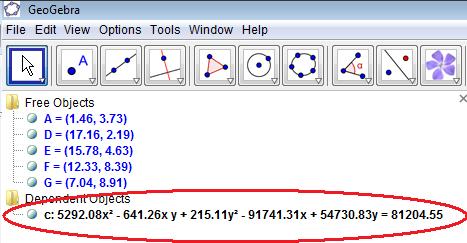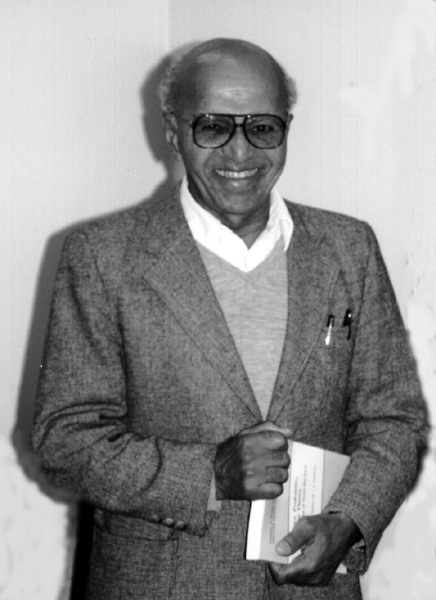A funny thing happened on the way to the graphing utility.
I thought I’d use Geogebra to estimate the equation of the water parabola I saw at the Detroit Airport.
So I pasted the photo into Geogebra, dropped five points on the arc, and then used “Construct Conic Through Five Points”. The results are on the right.
Now the weird part: the equation is not a parabola, but an ellipse. I thought that perhaps I had done a poor job of selecting points, but no matter how I chose the points, the equation came up as an ellipse.
Note the presence of both an x² and a y² in the equation below.
Is this a limitation of Geogebra? Is this an anomaly caused by rendering the digital picture? Or is the assumption that the path of the water is parabolic faulty?
Related Posts





